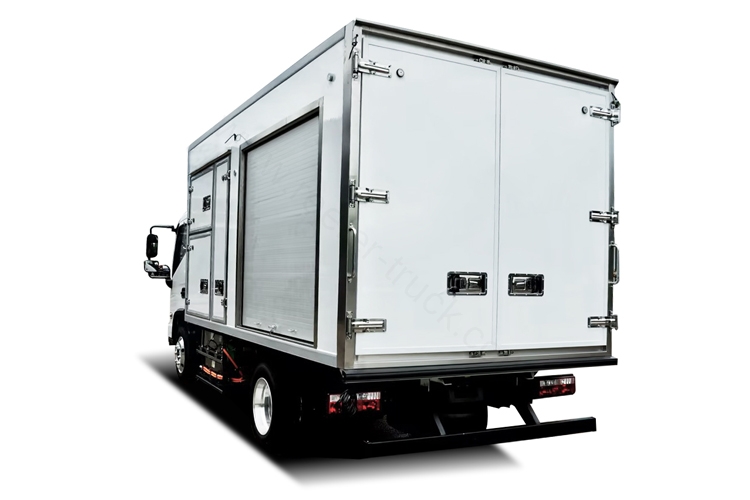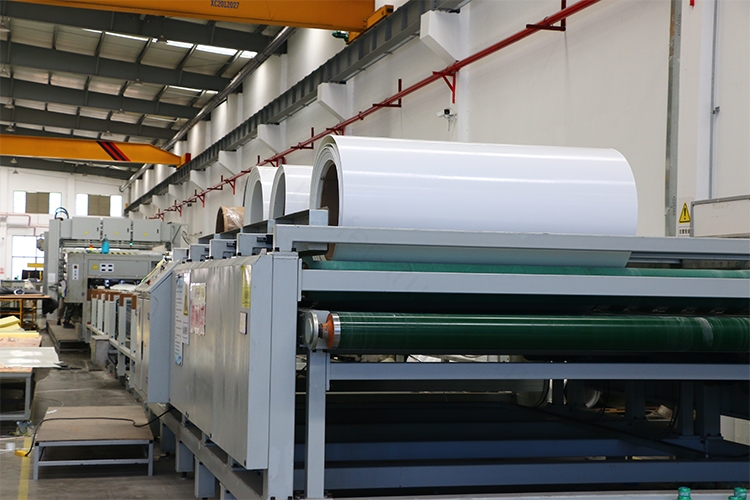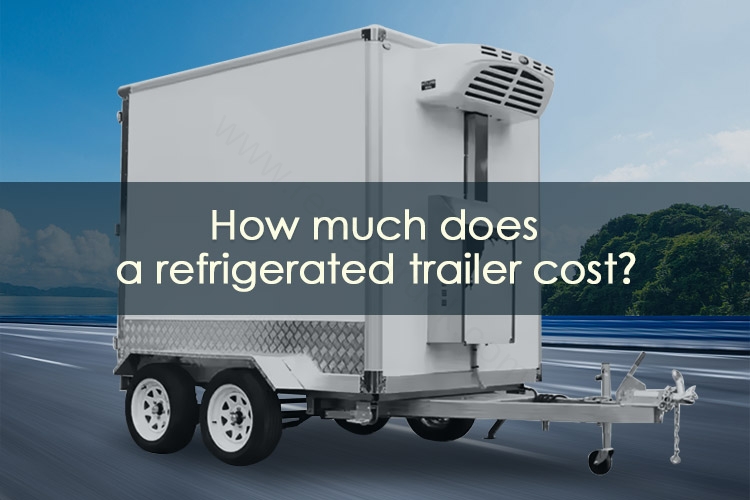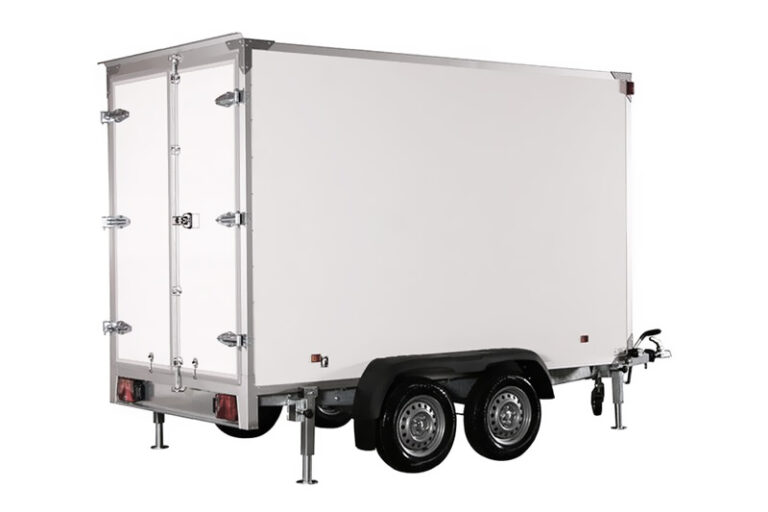How Long Is The Service Life Of The Reefer Trailer?
As the market demand for refrigerated trailers grows, so does the role it plays in cold chain transportation. About 400,000 TRU heavy-duty trucks are running on the roads of the European Union alone. The sales of truck refrigeration units can be a good reflection of the future sales trend of refrigerated trucks: a CAGR of 5.9% is expected to be realized in 2023-2030.
At the same time, there is an important issue that refrigerated trailers have a limited lifespan. When you buy a refrigerated trailer, you will consider its service life to avoid frequent replacement resulting in increased costs. How long is the service life of a refrigerated trailer?
How to increase the service life?
With these questions, you will find the answers in the following information.

What is the service life of a refrigerated trailer?
The usual service life of a refrigerated trailer is 10-15 years (i.e. 10 hours of use per day, 365 days per year), and the total hours will usually be 20,000-40,000 hours. Most refrigerated trailer suppliers will offer a warranty program. However, if you purchase a used refrigerated trailer, the warranty will generally not be honored.
| Aspect | Details |
| Usual Service Life | 10-15 years |
| Daily Usage | 10 hours per day |
| Annual Usage | 365 days per year |
| Total Hours of Use | 20,000 – 40,000 hours |
| Warranty Program | Typically offered by suppliers |
| Used Trailer Warranty | Generally not honored |
For high-quality refrigerated trailers and refrigeration units, their lifespan is also changed by maintenance and road factors. Fully enclosed refrigerated trailers must be meticulously maintained in areas such as refrigeration systems, insulation performance, and compressor condition.
With the continuous use of refrigerated trailers, its performance in all aspects of the phenomenon will decline. For example, when traveling for a long time on the road in a bad environment, such as a steep slope road, its refrigeration equipment as well as the sealing of the box truck body will receive influence. Especially in some extreme weather, or the ambient temperature keeps alternating between hot and cold, which will make its sealing and heat preservation. Therefore, when we buy a new refrigerated trailer, we must consider its quality and after-sales service.
How long does a refrigeration unit last?
Whether used in refrigerated trucks or trailers, a refrigeration unit typically has a lifespan of approximately 50,000 hours. Its longevity is influenced by multiple factors. With proper maintenance, its service life often exceeds expectations.
To ensure the unit reaches its expected lifespan, regular inspections and maintenance are essential. This includes cleaning components like coils and seals. Timely preventive measures can prevent damage.
A well-insulated environment reduces the long-term high load on the refrigeration unit and minimizes wear and tear.
How to extend the service life of the trailer
You need to have your refrigerated trailer regularly maintained and serviced by professionals. Before a breakdown occurs, although we may not know where the problem will be next time, it is possible to carry out careful maintenance and problem troubleshooting and replace some parts in the vulnerable and easy-to-break-down areas of the trailer to ensure that the trailer can have a longer service life.
Generally speaking, for a refrigerated trailer or truck body, the most important parts are its refrigeration unit, insulation, and sealing performance. To better extend the service life of the trailer, you can get the following information:
For the maintenance of the refrigeration unit
The refrigeration unit of a refrigerated trailer needs to be repaired and inspected regularly, and you will need to spend about 2-3 hours checking on some foreseeable problems in advance. This includes things like the belt drive of the refrigeration unit and the operating condition of the conventional unit. So what’s the approximate frequency?
Generally, you will need to change the oil filter regularly, usually every 30,000 hours or every 2-3 years.
In addition to this, regular inspections need to be performed, every 800 hours of operation for refrigerated trucks. This prevents major problems in the future, avoids operational issues, and reduces the risk of unexpected breakdowns. Even doing this can reduce running costs.

| Event | Frequency |
| Refrigeration Unit Inspection and Repair | Every 2-3 hours |
| Oil Filter Change | Every 30,000 hours or every 2-3 years |
| Regular Inspection | Every 800 hours of operation |
Daily self-inspection:
When loading, you need to test whether there is enough space around the goods to ensure air circulation.
Turn on the refrigeration system in advance 1 hour before loading.
Daily internal cleaning of the trunk to prevent mold and water from eroding the interior.
Routinely test the refrigeration unit for proper operation.
Check for signs of condensation.
Monitor temperature changes inside the refrigerated truck box at all times.
Frequent testing of the unit controller is required.
By doing the above, you can ensure that your refrigerated truck stays up and running all year round and earns a steady income for years to come.
| Event | Frequency |
| Check for sufficient air circulation around goods | Before each loading |
| Turn on refrigeration system in advance | 1 hour before loading |
| Daily cleaning of the truck interior to prevent mold | Daily |
| Routinely test the refrigeration unit’s operation | Regularly |
| Check for signs of condensation | Regularly |
| Monitor temperature changes inside the refrigerated truck | Continuous monitoring |
| Frequently test the unit controller | Regularly |
How to improve the thermal insulation and refrigerated performance?
Generally speaking, we need high-quality insulating effect material for the insulation effect of refrigerated truck bodies. Currently, refrigerated trucks with good insulation effects usually use FRP skin XPS form panels or FRP skin PU panels, which are excellent in terms of longevity and have outstanding insulation effects. Because XPS foam is a kind of plastic that does not absorb water, and FRP material has a very strong impact resistance and is very strong, it is very difficult to break, etc., we use FRP as the outer skin, it can also make the structure of the refrigerated trailer more stable.
Replacing your refrigerated trailer box with one of our FRP panels can increase its lifespan to 10-20 years. They also offer excellent thermal insulation and an excellent strength-to-weight ratio, greatly reducing your maintenance costs. As discussed in our reefer truck vs dry van comparison, we offer not only reefer containers but also dry truck containers.
Related Post
Related Product
Author introduction

Hello, customers
My name is Jack Yu and I am the Business Manager of Composite Box. I have been in the business of sandwich panels, refrigerated trucks and RVs for more than 10 years. Please feel free to contact us. I am happy to provide you with the best service and products.
Email: info@composite-box.com | Tel: 86+17280837525












